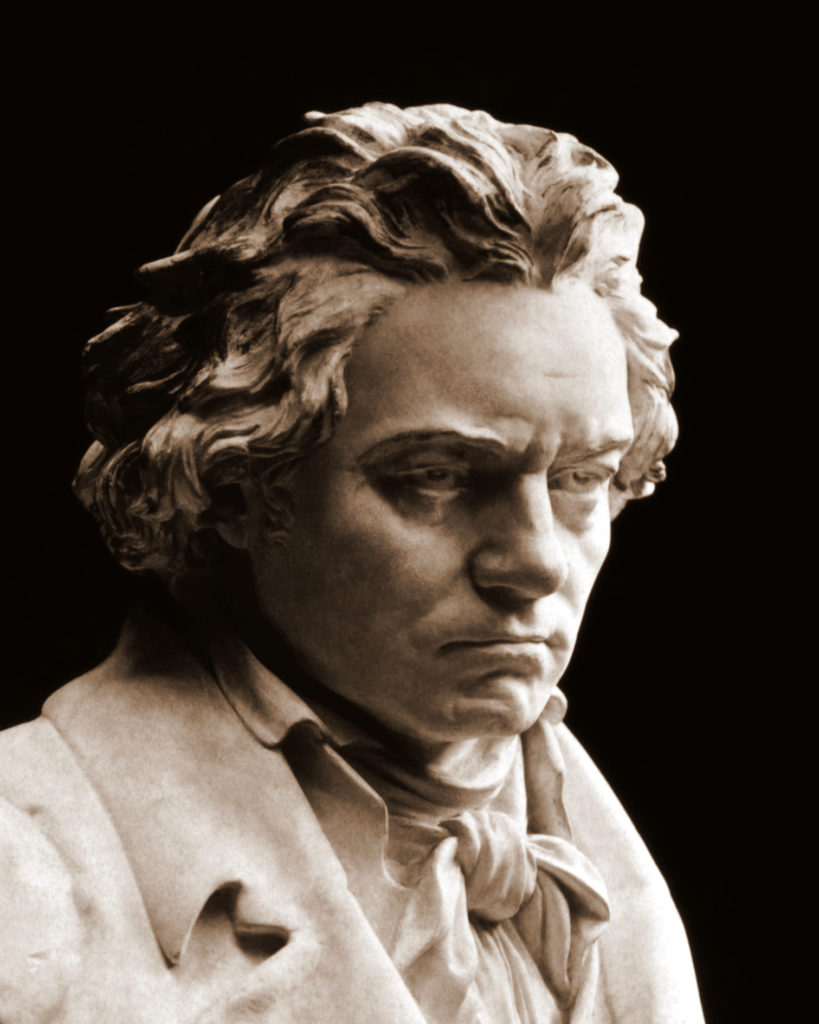Yannick and stellar quartet cap Beethoven series with impassioned “Missa Solemnis”

The Philadelphia Orchestra and Yannick Nézet-Séguin returned to Carnegie Hall for the Missa solemnis Friday night, the final concert in its season-long Beethoven series. Beethoven’s mass is a work tailor-made for Nézet-Séguin, and he instilled it with all of the grandeur, passion, and beauty that he could summon.
Beethoven considered the Missa solemnis to be one of his greatest accomplishments. It was composed roughly at the same time as the Ninth Symphony and calls for identical forces: orchestra, chorus, and four soloists. Portions of the Missa solemnis (the Kyrie, Credo, and Agnus Dei) were performed alongside the Ninth Symphony at the latter’s premiere in Vienna on May 7, 1824. A month earlier, the mass’s first performance had been in St. Petersburg, at a concert arranged by the Russian Prince Nikolai Galitzin, one of Beethoven’s patrons.
Beethoven had intended the Missa solemnis to be performed at the installation of Archduke Rudolf in March 1820. Beethoven missed the self-imposed deadline, but nonetheless dedicated the Mass to the archduke with the words, “From the heart—may it again—go to the heart!”
Although Beethoven was raised Catholic, he was not doctrinaire in either his religious beliefs or practices. The Missa solemnis, nonetheless, adheres to the traditional five-part structure of the Catholic mass. Its grandeur reflects the composer’s belief of in a divine power greater than himself. While the work’s transcendent beauty, best exemplified in the violin solo of the Benedictus, expresses Beethoven’s yearning for a world in which freedom, brotherhood, and love would prevail.
Nézet-Séguin went for big voices in this performance, and the quartet that he assemble—soprano Jennifer Rowley, mezzo-soprano, Karen Cargill, tenor Rodrick Dixon, and bass-baritone Eric Owens—were superb in that and every other regard. Seldom does one encounter a quartet as vocally and artistically equipped to meet the challenges that Beethoven posed in the Missa solemnis.
Rowley had the ability to float serenely above the thickest of musical textures, or slice through them with astonishing ease. Her sweeping phrases in the Benedictus were especially exciting. There are few dramatic mezzo-sopranos with voices as powerful and alluring as that of Karen Cargill. From the first notes that Cargill sang in the Kyrie, until her concluding solo in the Agnus Dei, she demanded attention and awe.
Dixon’s poised singing was similarly thrilling and his tenor expertly deployed. His finest moment came in the Credo, when the words ‘et in carnatus est” rang out with beauty of tone and profundity of emotion. Owens brought wisdom and authority to the bass lines, making the opening of the Agnus Dei a sonorous, heartfelt plea for mercy.
The Philadelphia Symphonic Choir acquitted itself admirably in the fiendishly difficult music. The chorus’ energy never flagged in the great fugues, which conclude both the Gloria and the Credo. The latter, so fast and furious, that it left the audience breathless. Whether hurling out the opening measures of the “Quonium tu solus sanctus” in the Gloria, or softly incanting the “Et incarnatus est” in the Credo, the tenors were in their element. The sopranos had the stamina to sing the seemingly endless sustained high notes with both vitality and beauty of sound. The chorus’ director, Amanda Quist, had prepared them well.
The demands that Beethoven placed on the orchestra are no less than those that he made on the vocal forces. The fabled Philadelphia strings never disappointed whether spinning out silken, soft phrases or playing fast and furious. In the Sanctus, the violas played with particularly rich tone and depth of feeling. The brass added extra punch to the performance’s soaring moments, but also lent a more burnished melancholiness to the more reflective, contemplate passages. The cry for peace in the Agnus Dei was made all the more desperate by the chilling playing of the tympani.
The Benedictus, especially the violin solo, is Beethoven at his most eloquent, hopeful and prayerful. Concertmaster David Kim captured all of these feelings with scintillating, silken tone. It was indisputably a star turn, but conductor and violinist strove to make the solo line an integral component of the orchestra texture, which gave it all the more impact musically and emotionally.
Nézet-Séguin led a performance that was viscerally thrilling, especially the supercharged jolts of sound that sliced through the air. At its most forceful, the combined sounds of voice and instruments resounded with remarkable clarity, no matter how fast the tempo. His greatest accomplishment, however, was crafting a performance that integrated so effectively the various musical forces gathered on stage.
It was a Missa solemnis at one with both Beethoven and our current time of war when the belief that all men are indeed brothers is once again being tested to its very limits.
The Philadelphia Orchestra returns to Carnegie Hall on April 21 with violinist Anne-Sophie Mutter and composer-conductor John Williams. carnegiehall.org


Posted Apr 10, 2022 at 12:55 am by Roy Kogan
It was a terrible and terribly disappointing performance. Kudos to the chorus, that sang beautifully, and did the best job it could under the circumstances.
Posted Apr 10, 2022 at 2:41 pm by Stephen Essrig
Sadly, and unfortunately for this normally astute website, I find this review completely off the mark. Apart from the final parts-Agnus Dei and Dona Nobis Pacem, and the last 5-7 minutes of the Credo, this performance was turgid, with balances that made it extremely difficult to hear Beethoven’s part writing and use of contrapuntal ornamentation.
I have NEVER heard a great performance from Séguin, but in today’s circumscribed world I understand he has the reputation of a Maestro. There is a performance of the Missa on the Musical Heritage Society Label that remains my beacon and reference. It’s controversial only because, amazingly, there is some disagreement as to the conductor: most think it’s Krips as do I given its clarity and lightened textures.
This performance is the antithesis and antidote to bloated romanticized Beethoven.